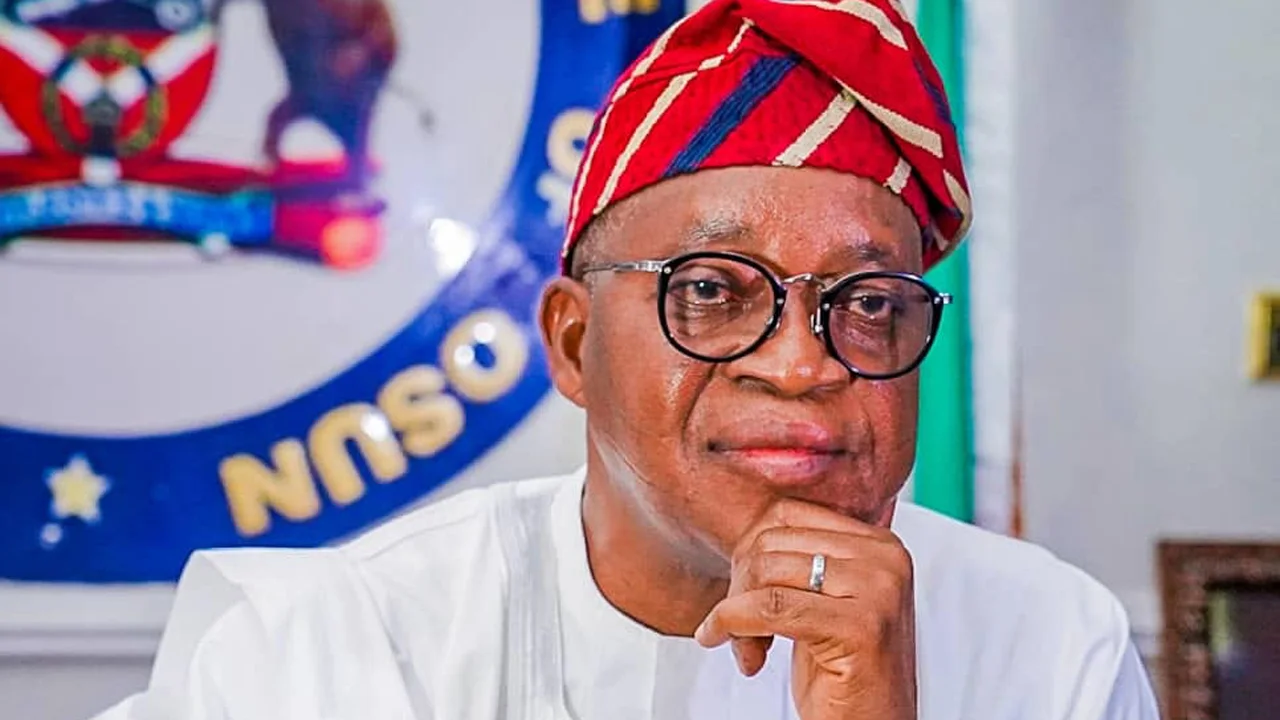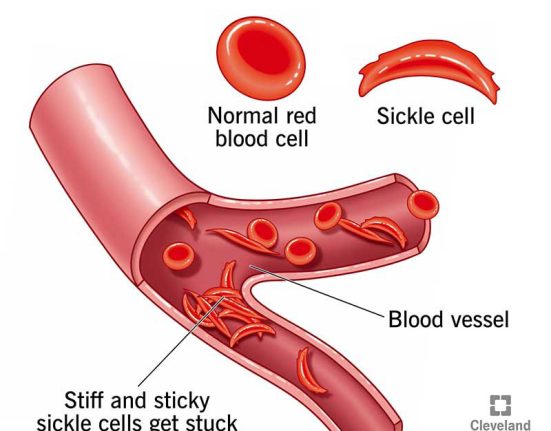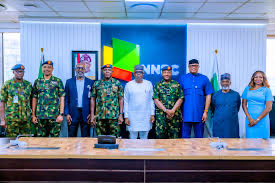The Minister of Marine and Blue Economy, Adegboyega Oyetola, has urged African nations to take a proactive role in decarbonizing the global shipping industry.
Speaking at the African Strategic Summit on Shipping Decarbonisation in Abuja, Oyetola called on stakeholders to move beyond discussions and implement tangible solutions to ensure Africa’s maritime sector remains competitive in an evolving global economy.
“It is a great honour to welcome you to the inaugural African Strategic Summit on Shipping Decarbonisation. This gathering brings together visionary leaders, policymakers, and industry professionals dedicated to shaping the future of Africa’s maritime industry. We are here not just to discuss challenges but to craft solutions that will propel Africa towards a sustainable and thriving blue economy,” he stated.
Highlighting the urgency of the matter, the minister noted that the global shipping industry is at a critical juncture, as the International Maritime Organisation (IMO) advances its Revised Greenhouse Gas Emissions Reduction Strategy and other midterm measures to tackle climate change.
“With over 90% of global trade relying on maritime transport, reducing greenhouse gas emissions from shipping is not just an environmental necessity but an economic priority. Africa must ensure its voice is heard and its interests safeguarded in shaping policies that affect our economies and livelihoods,” he emphasised.
Oyetola, a former Osun State governor, pointed out that Africa’s 38 coastal nations have a unique opportunity to benefit from the global energy transition—provided they adopt a strategic approach.
“Africa has a rare chance to explore the opportunities this energy transition presents. We must engage in meaningful discussions and partnerships that do not revert us to exploitative relationships but instead foster mutual respect, regional development, and a stronger global position. This will require effort, and that is the essence of this summit,” he remarked.
He further noted that Africa’s maritime sector is well-positioned to capitalise on its geographic advantage, renewable energy potential, and growing port infrastructure to emerge as a leader in green shipping.
“Decarbonising the shipping industry must be undertaken in a just and equitable manner, ensuring that no African nation is left behind,” he advised.
Oyetola also underscored that decarbonisation extends beyond ships to multiple sectors, including transport, climate change, trade, and investment. He advocated for fair revenue distribution from global decarbonisation policies, with funds reinvested in African maritime infrastructure, alternative fuel research, and workforce capacity building.
“Africa must use this platform to solidify its position and advocate for policy mechanisms that ensure a fair share of revenues from global decarbonisation initiatives. These funds should be directed towards enhancing our maritime infrastructure, supporting alternative fuel research, and developing a skilled workforce to create a resilient and competitive shipping industry,” he asserted.
He acknowledged the contributions of the Lead Afrocentric Project (LEAP) in providing research and policy recommendations for African nations at the IMO and called for the institutionalisation of technical expertise to enable Africa’s active participation in shaping global maritime decarbonisation policies.
“By building on the achievements of the LEAP Project and institutionalising technical expertise through professional technical networks and advisory bodies, Africa can transition from being a mere observer to an active participant in shaping global maritime decarbonisation policies,” he explained.
The minister outlined key areas where Africa could take a leadership role in green shipping, such as integrating renewable energy sources like wind, solar, and hydrogen into port infrastructure. He also stressed the importance of establishing green corridors—decarbonised shipping routes across the continent.
He highlighted the need for maritime workforce development to support the transition to zero or near-zero emission technologies. Additionally, he called for policies and incentives to promote African ship ownership, ensuring that local players have a stake in the industry’s transformation.
During his address, Oyetola announced Nigeria’s intention to bid for Category ‘C’ of the IMO Council in the upcoming November/December 2025 elections.
He cautioned that the slow pace of negotiations and research on zero-emission shipping could lead to African and other developing nations bearing the highest transport cost burden. He insisted that Africa must shift from being passive recipients of global policies to active decision-makers.
“The time for Africa to take control of its maritime future is now. We must move away from being passive recipients of global policies that fail to consider our unique circumstances,” he declared.
Oyetola urged summit participants to engage in strategic collaboration to secure Africa’s place in the future of global shipping.
“As we deliberate over the next two days, I encourage each of us to think boldly, act decisively, and collaborate strategically. Together, we can shape a greener, more inclusive, and more prosperous African maritime future—one that is largely defined on our own terms,” he concluded.
Also speaking at the event, the CEO of the Nigerian Maritime Administration and Safety Agency, Dayo Mobereola, emphasised the urgency of shipping decarbonisation.
“Reducing greenhouse gas emissions from the shipping industry is crucial, as it currently accounts for approximately three percent of global emissions. These emissions contribute significantly to climate change, and the world is now focused on decarbonization. Africa must ensure it is not left behind,” Mobereola stated.







